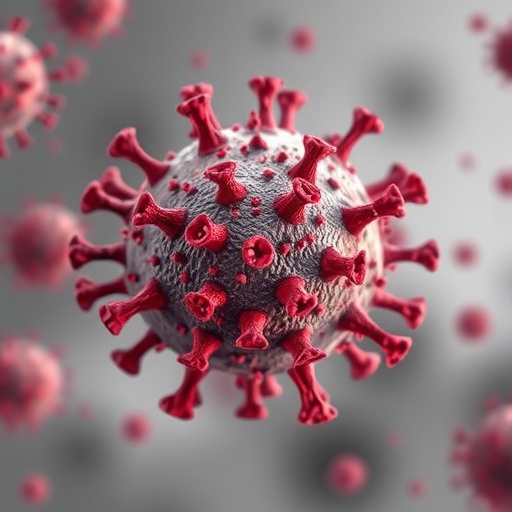The Gladstone Institute of Virology has undergone a significant transformation in both name and scientific mission, emerging as the Gladstone Infectious Disease Institute. This evolution reflects a strategic broadening of research scope from a primary focus on viral pathogens—including HIV, influenza, and SARS-CoV-2—to encompassing a wider array of infectious agents such as bacteria, their interactions, and consequent impacts on global health. This change, led by Melanie Ott, MD, PhD, director of the newly named institute, signals an ambitious commitment to tackle the complex landscape of infectious diseases that threaten human populations worldwide.
Virology has long been a cornerstone at Gladstone, with foundational studies on HIV revealing how the virus commandeers the host immune system. These insights revolutionized treatment by transitioning HIV/AIDS from an acutely fatal illness to a manageable chronic condition through antiretroviral therapies. Further, Gladstone scientists played a pivotal role in advancing pre-exposure prophylaxis (PrEP) with FDA-approved drugs like Truvada, drastically reducing new infections in at-risk groups globally. This legacy of viral research firmly anchors the institute’s ongoing projects focused on persistent viral threats and emerging pathogens.
Despite these achievements, the expanding challenge of antibiotic-resistant bacterial infections has forced a shift toward integrative approaches. The Gladstone Infectious Disease Institute now integrates microbiology with virology to explore the intricate interplay between viruses and bacteria within human hosts. One prominent example is the exploration of bacteriophages—viruses that specifically infect bacteria—as innovative therapeutic agents. Phage therapy represents a promising alternative amid escalating antibiotic resistance, offering targeted bacterial eradication by leveraging the natural predator-prey dynamics within microbiomes.
On the frontier of research innovation, Gladstone scientists are conducting large-scale screens of tens of thousands of bacteriophages to isolate candidates with potent antibacterial activity. Complementing this, cutting-edge genomic editing technologies have been developed to engineer phages into customized antibacterial agents, enhancing their efficacy and specificity. These approaches aim to circumvent limitations faced by conventional antibiotics, which increasingly fail against formidable bacterial strains responsible for diseases like pneumonia and tuberculosis.
Simultaneously, the institute is pioneering diagnostic advancements that harness molecular and computational technologies. During the COVID-19 pandemic, Gladstone researchers devised a rapid, one-step diagnostic test for SARS-CoV-2 that uniquely integrates CRISPR-based detection with smartphone camera technology. This portable, sensitive assay exemplifies how innovative diagnostics can facilitate real-time infection detection, enabling more effective epidemiological surveillance and patient management even in resource-limited settings.
Beyond pathogen-specific investigations, the institute has expanded into the study of the human microbiome—the diverse ecosystem of bacteria, viruses, fungi, and protozoa inhabiting the body. Increasing evidence links microbial community imbalances to a spectrum of diseases ranging from autoimmune disorders to neuropsychiatric conditions. Gladstone researchers have contributed computational tools capable of predicting disease susceptibility based on microbiome profiles, empowering personalized medicine approaches and illuminating microbial contributions to health and disease resilience.
A particularly intriguing dimension of this research is the study of the human virome, the collective viral populations residing within the body. These viruses often exist in complex symbiosis with bacterial communities, influencing host physiology and immune responses. The institute’s integrated research approach is essential because viruses and bacteria often intersect functionally—bacteria can harbor dormant viral genomes (prophages), while viruses can modulate bacterial behaviour through gene transfer, dramatically affecting disease dynamics and treatment outcomes.
The renaming of the institute signals readiness to confront infectious diseases holistically, transcending disciplinary silos. Current research portfolios encompass classical virology studies of HIV, hepatitis C, influenza, and SARS-CoV-2 (with a dedicated focus on understanding mechanisms underlying long COVID), alongside novel bacterial and microbiome projects. The conceptual framework is to leverage virological insights to innovate across the infectious disease spectrum, informing vaccine development, therapeutic strategies, and diagnostics.
Indeed, vaccine research is another cornerstone of Gladstone’s expanded mission. Teams are exploring novel vaccine platforms to enhance protective efficacy against viral infections and leveraging this knowledge to develop therapeutic cancer vaccines that stimulate immune clearance of tumours. The institute’s emphasis on immune modulation exemplifies its commitment to translating fundamental scientific discovery into tangible clinical interventions addressing multiple health crises.
Strategically situated within the larger Gladstone Institutes ecosystem, located in San Francisco’s vibrant Mission Bay neighborhood, the Infectious Disease Institute benefits from a collaborative interdisciplinary environment. This synergy accelerates progress toward cures for globally devastating diseases, supported by visionary investment in high-risk, high-reward research. The leadership affirms that scientific agility and adaptability are vital to confronting evolving pathogens and emerging diseases.
Through these concerted efforts, the Gladstone Infectious Disease Institute is poised to redefine infectious disease science in the 21st century. By integrating virology, bacteriology, microbiomics, and emerging technologies, the institute embodies a forward-thinking model dedicated to unraveling the complexities of pathogens and host interactions. Ultimately, this holistic approach holds promise for breakthroughs that will improve health outcomes worldwide, addressing some of the most pressing and persistent threats in global medicine.
Subject of Research: Not applicable
Article Title: Gladstone Institute of Virology Renamed to Gladstone Infectious Disease Institute to Address Broad Spectrum of Global Infectious Threats
News Publication Date: Not specified
Web References:
– Gladstone Infectious Disease Institute: https://gladstone.org/science/infectious-disease-institute
– Melanie Ott profile: https://gladstone.org/people/melanie-ott
– Deepak Srivastava profile: https://gladstone.org/index.php/people/deepak-srivastava
– Gladstone Institutes homepage: https://gladstone.org
References:
– PubMed computational microbiome tools study: https://pubmed.ncbi.nlm.nih.gov/40424276/
Image Credits: Gladstone Institutes
Keywords: Infectious diseases, Virology, Human microbiota, Antibiotic resistance, Bacteriophages, Viral infections, Bacterial infections
Tags: antibiotic-resistant bacteriabacterial interactions with viruseschronic disease managementemerging infectious pathogensGladstone Institute of Virologyglobal health challengesHIV treatment advancementsinfectious disease prevention strategiesinfectious disease researchintegrative research approachespre-exposure prophylaxis developmentPublic Health Initiatives





